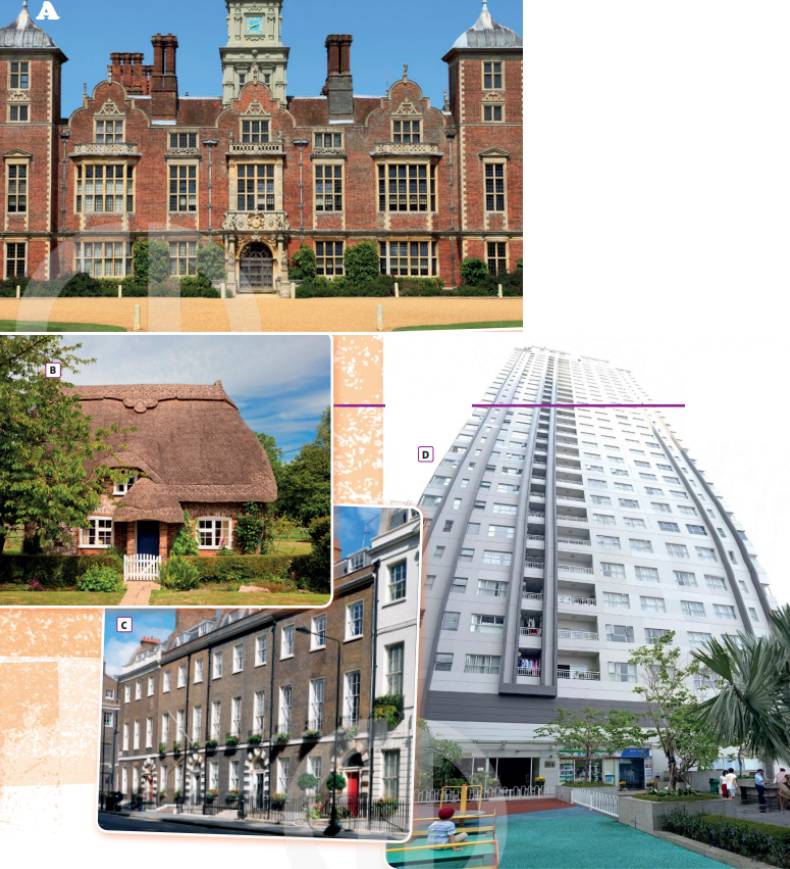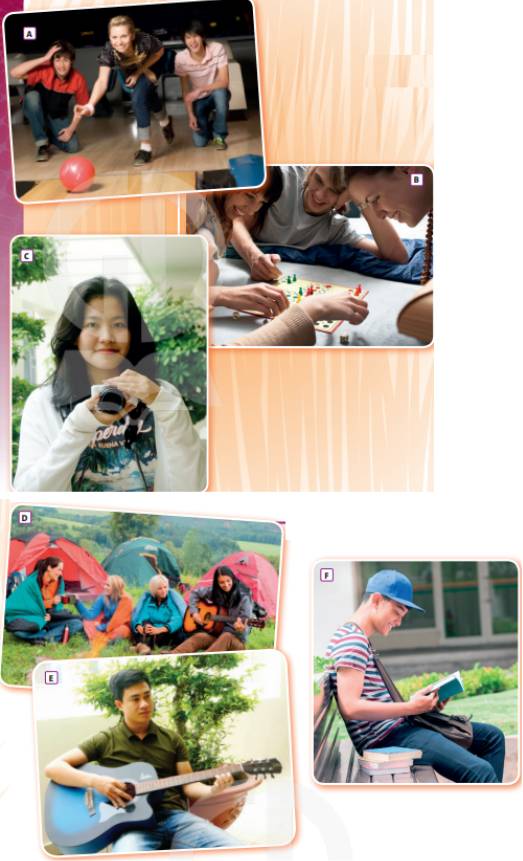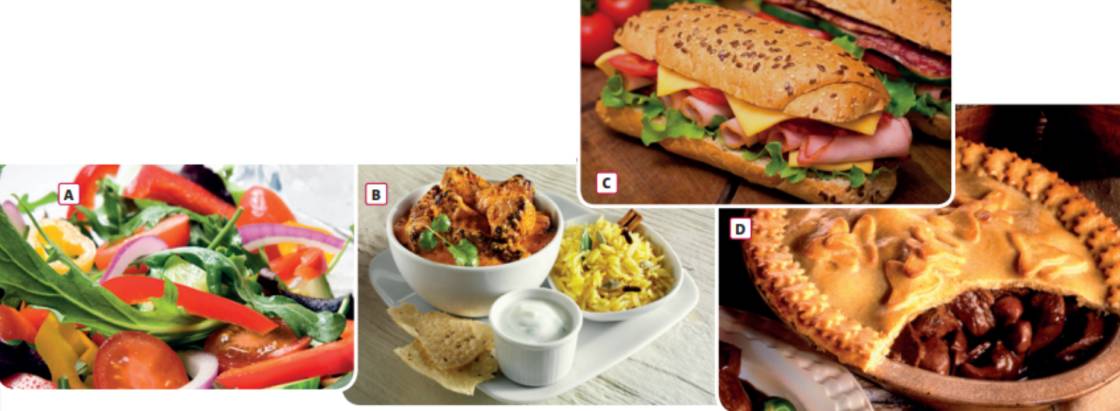
Hãy nhập câu hỏi của bạn vào đây, nếu là tài khoản VIP, bạn sẽ được ưu tiên trả lời.


A. mansion (khu nhà lớn)
B. thatched cottage (nhà tranh lợp mái)
C. semi-detached house (nhà liền kề)
D. flat (căn hộ)
A: What type of home do you live in?
(Bạn sống trong loại nhà nào?)
B: I live in a detached house in district 10.
(Tôi sống trong một căn nhà biệt lập ở quận 10.)

A. play bowling: chơi bowling
B. play chess: chơi cờ
C. make video blog: làm video blog
D. go camping: đi cắm trại
E. play musical instrument: chơi nhạc cụ
F. read books: đọc sách

A: What do you usually do on weekends?
B: I often stay at home to recharge my battery after a long week of studying. On Sunday, I usually hang out with my friend at the coffee shop and go to the supermarket to buy some food for the next week.
A: How about this weekend? What are you doing?
B: On Saturday, I’m practicing playing badminton to prepare for the competition at my school.
A: And on Sunday?
B: Well, this Sunday, I'm going to the cinema at Vincom center to watch “Nha Ba Nu” movie with my family. It is a famous family movie. Would you like to come with us?
A: Yes, I’d love to
Tạm dịch:
A: Bạn thường làm gì vào cuối tuần?
B: Tôi thường ở nhà để nạp năng lượng sau một tuần dài học tập. vào Chủ nhật, tôi thường đi uống cà phê với bạn bè và đi siêu thị để mua một số thực phẩm cho tuần tới.
A: Còn cuối tuần này thì sao? Bạn sẽ làm gì thế?
B: Vào thứ Bảy, tôi dự định tập chơi cầu lông để chuẩn bị cho cuộc thi ở trường của tôi.
A: Và vào Chủ nhật?
B: À, chiều Chủ nhật này, tôi sẽ đến rạp chiếu phim ở trung tâm Vincom để xem phim “Nhà Bà Nữ” với gia đình. Đó là một bộ phim gia đình nổi tiếng. Bạn muốn đi cùng chúng tôi không?
A: Vâng, tôi rất thích.

*Picture A: tennis court, safety net, sea shore, tower block.
(Hình A: sân tennis, lưới an toàn, bờ biển, tòa tháp.)
*Picture B: flood lights, swimming pool, tower block
(Hình B: đèn pha, bể bơi, tòa tháp)
*Picture C: main road, mountain range
(Hình C: con đường chính, dãy núi)

A. salad | B. stew | C. banh mi | D. curry pie |
I like salad because it's good for our skin and suitable for losing weight. I don't like curry pie because I don't like that smell.

| nuclear family | generation gap |
| hairstyle | school children |
| junk food |
1 . why is there a ..............generation gap.................between parents and children ?
2 . Why are soft drinks and ..........junk food..................not good for our health ?
3 . Do you think .......school children......should wear uniforms ?
4 . Is the .........nuclear family.............the perfect type of family ?
5 . Have your parents ever complained about your ...............hairstyle.................?
Ex 4 : Fill in each blank with the given work
| nuclear family | generation gap |
| hairstyle | school children |
| junk food |
1 . why is there a ................generation gap...............between parents and children ?
2 . Why are soft drinks and ..................junk food..........not good for our health ?
3 . Do you think .......school children......should wear uniforms ?
4 . Is the .............nuclear family.........the perfect type of family ?
5 . Have your parents ever complained about your .................hairstyle ...............?

Fill in the blank:
| 1 | We live in a six-storey (6 letters) block of flats. |
| 2 | Jon is absent-minded (6 letters). He forgets everything. |
| 3 | Jason's got a well-paid (4 letters) job in a bank. |
| 4 | I was tongue-tied (6 letters). I couldn't say a word. |
| 5 | I bought a remote-controlled (10 letters) car for my son. |
| 6 | Alice's tight-fisted (6 letters). She hates spending money. |
| 7 | This apple juice is very thirst-quenching (6 letters). |
| 8 | My all-time (4 letters) favourite film is 'Titanic'. |
Nghĩa:
1. six-storey: 6 tầng
2. absent-minded: đãng trí
3. well-paid: được trả lương cao
4. tongue-tied: không nói được gì vì xấu hổ (có thể dịch là CẠN LỜI :v)
5. remote-controlled: điều khiển từ xa
6. tight-fisted: hà tiện
7. thirst-quenching: giải khát
8. all-time: mọi thời đại

![]()
LEARN THIS! The third conditional
a We form the third conditional with if + past perfect, would have + past participle.
If I had seen her, I would have offered her a lift.
b We use the third conditional to talk about imaginary situations and to say how things could have been different in the past.
If you hadn't gone by taxi, you 1 wouldn’t have arrived (not arrive) on time.
c We often use it to express regret or criticism.
If you 2 had left (leave) earlier, you 3 wouldn’t have been (not be) late!


